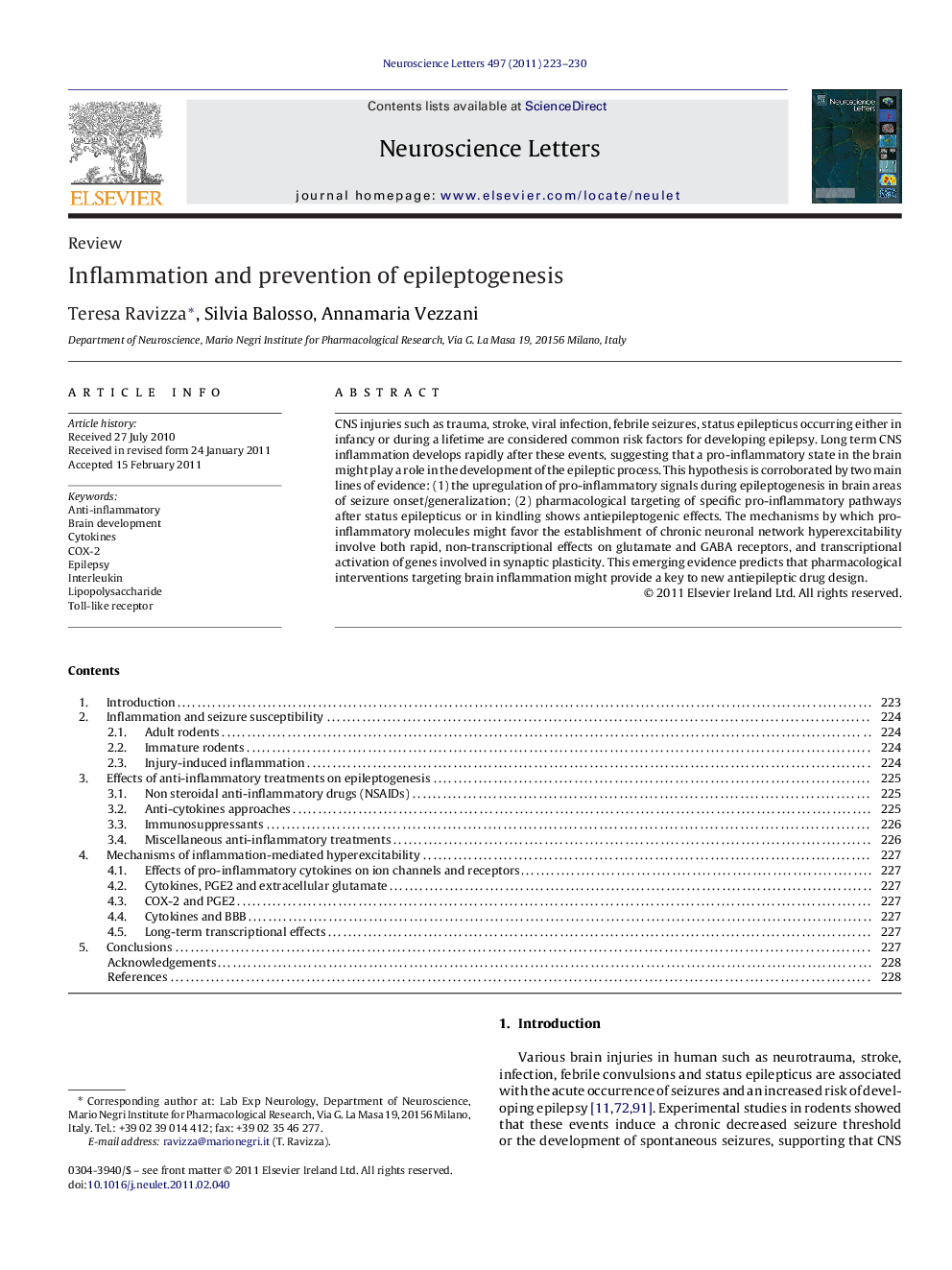| Article ID | Journal | Published Year | Pages | File Type |
|---|---|---|---|---|
| 4345419 | Neuroscience Letters | 2011 | 8 Pages |
CNS injuries such as trauma, stroke, viral infection, febrile seizures, status epilepticus occurring either in infancy or during a lifetime are considered common risk factors for developing epilepsy. Long term CNS inflammation develops rapidly after these events, suggesting that a pro-inflammatory state in the brain might play a role in the development of the epileptic process. This hypothesis is corroborated by two main lines of evidence: (1) the upregulation of pro-inflammatory signals during epileptogenesis in brain areas of seizure onset/generalization; (2) pharmacological targeting of specific pro-inflammatory pathways after status epilepticus or in kindling shows antiepileptogenic effects. The mechanisms by which pro-inflammatory molecules might favor the establishment of chronic neuronal network hyperexcitability involve both rapid, non-transcriptional effects on glutamate and GABA receptors, and transcriptional activation of genes involved in synaptic plasticity. This emerging evidence predicts that pharmacological interventions targeting brain inflammation might provide a key to new antiepileptic drug design.
► Pro-inflammatory molecules are upregulated during epileptogenesis. ► Brain inflammation favors neuronal network hyperexcitability. ► Targeting specific pro-inflammatory pathways result in antiepileptogenic affects.
